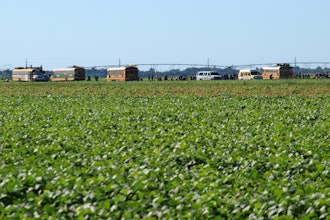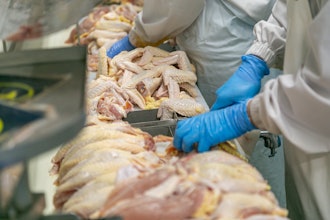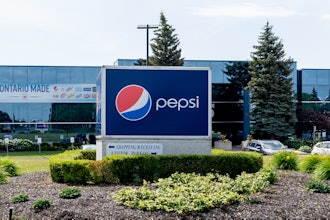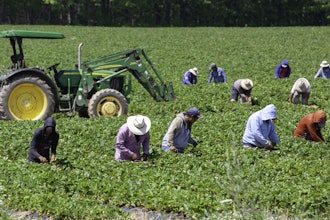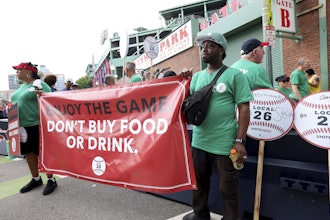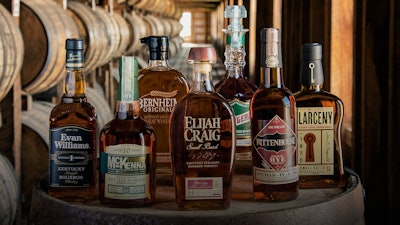
Union workers, upset over the prospect of expanded weekend shifts, have manned picket lines at bottling and warehouse operations of Kentucky-based Heaven Hill Distillery, one of the world's largest bourbon producers.
The walkout, in its third day Monday, involves about 420 members of United Food and Commercial Workers Local 23D. They voted overwhelmingly last week to reject a new five-year contract offer and formed picket lines Saturday at Heaven Hill's operations in Bardstown, Kentucky.
Family-owned and operated Heaven Hill produces Evan Williams, one of the world's top-selling bourbons. Other Heaven Hill brands include Elijah Craig, Henry McKenna, Old Fitzgerald, Larceny and Parker’s Heritage Collection.
The dispute over weekend work is a sign of the bourbon industry's growing pains as it tries to keep up with increasing global demand.
Heaven Hill signaled that it wanted to assign new hires to nontraditional schedules that would include weekend work, Local 23D President Matt Aubrey said in a phone interview Monday. The company was vague about how widespread the weekend shifts would be and how it would affect existing workers if weekend shifts could not be covered by new employees, he said.
That raised a “red flag” with union workers and helped spur the walkout, Aubrey said.
“We know Heaven Hill is family owned. They tell these workers, ‘You’re family, just like us. You’re our family,’” Aubrey said, adding that most workers have their own families. "If they get pushed on this nontraditional schedule, then that’s going to take them away from their loved ones.”
The union said the company's contract offer also would remove a cap on health insurance premium increases, cut overtime and reduce take-home pay.
Heaven Hill said its support of employees “has been a source of pride” since its founding.
“We have had productive conversations with the union for several months now regarding components of the contract,” the company said in a statement. “We will continue to collaborate with UFCW leadership toward passage of this top-of-class workforce package.”
Workers often spend long careers at Kentucky bourbon distilleries, and the jobs often attract multiple generations of families. Disputes flare up occasionally, and other strikes occurred in recent years at Jim Beam and Four Roses — other iconic names in the bourbon sector.
The bourbon industry has been on a long-running upward trajectory. Combined U.S. sales for bourbon, Tennessee whiskey and rye whiskey rose 8.2%, or $327 million, to $4.3 billion in 2020, despite plunging sales from bars and restaurants because of the COVID-19 pandemic, the Distilled Spirits Council of the United States reported early this year.
Kentucky distilleries produce 95% of the world's bourbon supply, according to the Kentucky Distillers’ Association.












